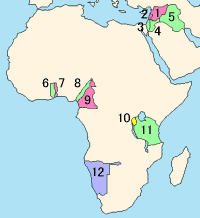
A League of Nations mandate represented a legal status under international law for specific territories following World War I, involving the transfer of control from one nation to another. These mandates served as legal documents establishing the internationally agreed terms for administering the territory on behalf of the League of Nations. Combining elements of both a treaty and a constitution, these mandates contained minority rights clauses that provided for the rights of petition and adjudication by the Permanent Court of International Justice.
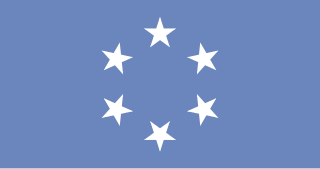
The Trust Territory of the Pacific Islands (TTPI) was a United Nations trust territory in Micronesia administered by the United States from 1947 to 1994. The Imperial Japanese South Seas Mandate had been seized by the US during the Pacific War, as Japan had administered the territory since the League of Nations gave Japan a mandate over the area from Imperial Germany after World War I. However, in the 1930s, Japan left the League of Nations and invaded additional lands. During World War II, military control of the islands was disputed, but by the war's end, the islands had come under the Allies' control. The Trust Territory of the Pacific was created to administer the islands as part of the United States while still under the auspices of the United Nations. Most of the island groups in the territory became independent states, with some degree of ties kept with the United States: the Federated States of Micronesia, Marshall Islands and Palau are today independent states in a Compact of Free Association with the US, while the Northern Mariana Islands remain under US jurisdiction, as an unincorporated territory and commonwealth.

The United Nations Trusteeship Council is one of the six principal organs of the United Nations, established to help ensure that trust territories were administered in the best interests of their inhabitants and of international peace and security.

The United Nations Truce Supervision Organization (UNTSO) is an organization founded on 29 May 1948 for peacekeeping in the Middle East. Established amidst the 1948 Arab–Israeli War, its primary task was initially to provide the military command structure to the peacekeeping forces in the Middle East to enable the peacekeepers to observe and maintain the ceasefire, and in assisting the parties to the Armistice Agreements in the supervision of the application and observance of the terms of those Agreements. The organization's structure and role has evolved over time as a result of the various conflicts in the region and at times UNTSO personnel have been used to rapidly deploy to other areas of the Middle East in support of other United Nations operations. The command structure of the UNTSO was maintained to cover the later peacekeeping organisations of the United Nations Disengagement Observer Force (UNDOF) and the United Nations Interim Force in Lebanon (UNIFIL) to which UNTSO continues to provide military observers.
A United Nations General Assembly resolution is a decision or declaration voted on by all member states of the United Nations in the General Assembly.

Corpus separatum was the internationalization proposal for Jerusalem and its surrounding area as part of the United Nations Partition Plan for Palestine. It was adopted by the United Nations General Assembly with a two-thirds majority in November 1947. According to the Partition Plan, the city of Jerusalem would be brought under international governance, conferring it a special status due to its shared importance for the Abrahamic religions. The legal base ("Statute") for this arrangement was to be reviewed after ten years and put to a referendum. The corpus separatum was again one of the main issues of the post-war Lausanne Conference of 1949, besides the borders of Israel and the question of the Palestinian right of return.

United Nations Security Council resolution 1173, adopted unanimously on 12 June 1998, after reaffirming Resolution 696 (1991) and all subsequent resolutions on Angola, particularly Resolution 1127 (1997), the council announced its intention to impose further sanctions against UNITA for non-compliance, unless it co-operated to extend state administration throughout the country.

United Nations Security Council Resolution 21 was adopted unanimously on 2 April 1947. The Council placed the German Pacific Islands, which were formerly mandated to Japan by the League of Nations, under the Trusteeship System.

The United Nations Assistance Mission for Iraq (UNAMI) was formed on 14 August 2003 by United Nations Security Council (UNSC) Resolution 1500 at the request of the Iraqi government to support national development efforts.

United Nations Security Council resolution 664, adopted unanimously on 18 August 1990, reaffirming resolutions 660 (1990), 661 (1990) and 662 (1990), the Council recalled Iraq's obligations under international law and acting under Chapter VII of the United Nations Charter, demanded that Iraq permit and facilitate the departure of nationals from third countries from within Iraq and Kuwait, calling for consular and diplomatic access to the third state nationals.
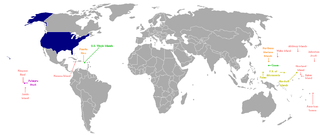
United Nations Security Council resolution 683, adopted on 22 December 1990, after recalling Resolution 21 (1947) which approved the Trusteeship Territory of the Japanese Mandated Islands as well as Chapter XII of the United Nations Charter which established the United Nations Trusteeship system, the council determined that, in the light of entry into force of new status agreements for the Federated States of Micronesia, the Marshall Islands and the Northern Mariana Islands, the objectives of the Trusteeship Agreement had been completed and therefore ended the Trusteeship Agreement with those entities.
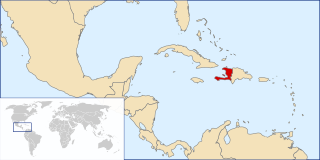
United Nations Security Council Resolution 841, adopted unanimously on 16 June 1993, after recognising the need for an urgent settlement to the situation in Haiti and the efforts of the Secretary-General of the United Nations Boutros Boutros-Ghali and the Secretary General of the Organization of American States João Clemente Baena Soares, the Council placed various international sanctions on Haiti.
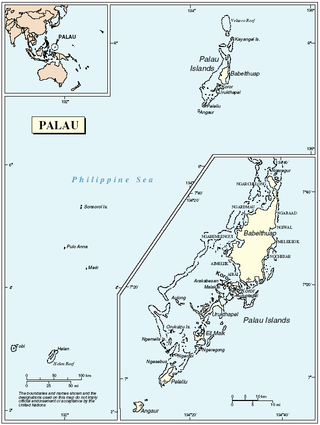
United Nations Security Council resolution 956, adopted unanimously on 10 November 1994, after recalling Chapter XII of the United Nations Charter which established the United Nations Trusteeship system and Resolution 21 (1947) which approved the Trusteeship Territory of the Japanese Mandated Islands, the Council determined that, in the light of entry into force of a new status agreement for the Republic of Palau, the objectives of the Trusteeship Agreement had been completed and therefore ended the status of Palau as a Trust Territory.
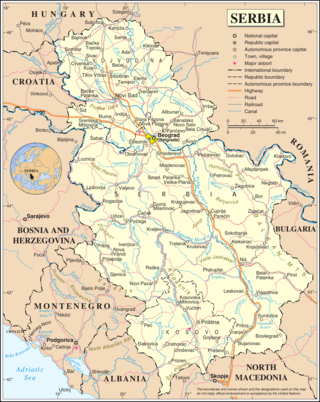
United Nations Security Council resolution 970, adopted on 12 January 1995, after reaffirming all resolutions on the situation in Bosnia and Herzegovina in particular Resolution 943 (1994) concerning the border closure between the Federal Republic of Yugoslavia and Bosnia and Herzegovina, the Council decided that measures in that resolution would be suspended for a further period of 100 days.

United Nations Security Council resolution 1093, adopted unanimously on 14 January 1997, after recalling previous resolutions on Croatia including resolutions 779 (1992), 981 (1995), 1025 (1995), 1038 (1996) and 1066 (1996), the Council authorised the United Nations Mission of Observers in Prevlaka (UNMOP) to continue monitoring the demilitarisation in the Prevlaka peninsula area of Croatia until 15 July 1997.

United Nations Security Council resolution 1210 was adopted unanimously on 24 November 1998, after recalling all previous resolutions on Iraq, including resolutions 986 (1995), 1111 (1997), 1129 (1997), 1143 (1997), 1153 (1998) and 1175 (1998) concerning the Oil-for-Food Programme. The Council extended provisions relating to the export of Iraqi petroleum or petroleum products sufficient to produce US$5.256 billion worth of oil for a further 180 days.

United Nations Security Council resolution 1242, adopted unanimously on 21 May 1999, after recalling all previous resolutions on Iraq, including resolutions 986 (1995), 1111 (1997), 1129 (1997), 1143 (1997), 1153 (1998), 1175 (1998) and 1210 (1998) concerning the Oil-for-Food Programme, the Council extended provisions relating to the export of Iraqi petroleum or petroleum products sufficient to produce up to US$5.256 billion worth of oil for a further 180 days.

United Nations Security Council resolution 1281, adopted unanimously on 10 December 1999, after recalling all previous resolutions on Iraq, including resolutions 986 (1995), 1111 (1997), 1129 (1997), 1143 (1997), 1153 (1998), 1175 (1998), 1210 (1998), 1242 (1999), 1266 (1999), 1275 (1999) and 1280 (1999) concerning the Oil-for-Food Programme, the council extended provisions relating to the export of Iraqi petroleum or petroleum products sufficient to produce up to US$5.256 billion worth of oil for a further 180 days.

United Nations Security Council Resolution 1832 was unanimously adopted on 27 August 2008.
United Nations Security Council Resolution 1881 was unanimously adopted on 30 July 2009.















